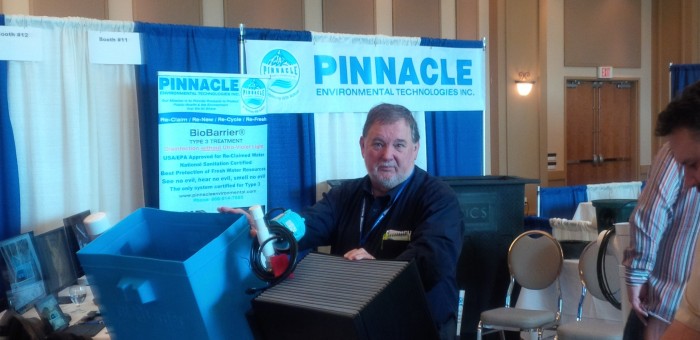Environment
Good News for Environmental Science in the BC K-9 Science Curriculum
British Columbia is presently revising its K-9 education curriculum and assessment. Such revisions form an important and continual process in updating and making the curriculum better reflect modern society as well as more recent teaching and learning strategies. The Ministry of Education has made available draft curricula since the fall and has sought feedback on it from teachers and the general public. The proposed science curriculum created a significant amount of controversy when it appeared to largely eliminate environmental science from the curriculum and place some subject matter at age-inappropriate levels (such as atoms or molecules as particles of matter in Grade 4).
I received numerous letters from constituents (including teachers) within the riding of Oak Bay-Gordon Head as well as from elsewhere across British Columbia. This prompted me to write the letter below to the Minister of Education outlining the concerns with respect to the draft science curriculum.
January 24th 2013 Honourable Peter Fassbender Minister of Education Parliament Buildings Victoria BC V8V 1X4
Dear Minister Fassbender,
I am writing to you with regards to a concern that has been raised by a number of my constituents regarding an apparent watering down of the environmental education component in the draft K-7 science curriculum. In addition, I have received letters from teachers regarding the proposed changes. I am sure your office has also received a fair number of letters on this topic.
I recognize that it is important to continually revise the education curriculum to reflect both societal changes and advancements in scientific understanding. However, after examining the curriculum myself, I concur that in its current draft form, the new student curriculum for BC schools appears to omit key scientific concepts regarding environmental issues, or has shifted them to an inappropriate grade level. Given a Ministry spokesperson’s comments that this is merely a draft open to revision and overhaul after feedback, I thought I would take the opportunity to provide you with some feedback.
As I am sure you are aware, my background is in atmospheric and oceanic sciences. I have worked extensively with teachers throughout lower Vancouver Island in the development of age-appropriate curriculum resources to assist them deliver the Grade 4 weather PLO of the current curriculum. In particular, my assistant and I have installed at no cost more than 150 weather stations on schools from Campbell River to Victoria (with more planned in the months ahead). These are visible at: www.victoriaweather.ca; www.nanaimoweather.ca; www.islandweather.ca. As such, I believe I have some direct experience with the current curriculum.
Across Canada, weather is covered in the Grade 5 curriculum in Alberta, Manitoba, New Brunswick, Nova Scotia, Newfoundland, PEI, NWT and the Grade 4 curriculum in British Columbia, Saskatchewan, as well as the Grade 6 curriculum in Nunavut. In Québec, weather and climate are pervasive throughout the 2nd and 3rd cycles (Grades 3-6). Weather is not covered effectively in the Ontario K-8 science curriculum.
One of the reasons that it is important to study weather at the Grade 4 or 5 levels is that it is perhaps the most easily observable application of basic physics and chemistry (forces, energy etc.). In addition, students can build instruments that allow them to collect data that vary with time and place and affect their daily activities. These data can be plotted and examined using a variety of techniques in mathematics and statistics (see: Weaver and Wiebe, 2006 available at http://www.victoriaweather.ca/resources/info/2006CMOSBulletin.pdf; and Weaver and Mueller, 2009 for more details). Children at the Kindergarten level (where weather is proposed to be covered in the revised science curriculum) do not have the abilities to benefit from this integrated approach.
Students often perceive science and mathematics to hard and irrelevant (Williams et al., 2003). King and Kennett (2002) further note that teaching physics (and by extension mathematics) in the context of Earth sciences, which include weather and climate, is one of the best means of making it relevant to students. By corollary, topics in the environmental sciences would also provide applications of biology and chemistry that are relevant to students.
I hope that you will consider pausing and reflecting upon the myriad comments that I am sure you have received concerning the proposed revisions to the environmental science component of the curriculum. Are the changes to the handling of the environmental sciences really in the best interests of student learning and retention of mathematics and science?
Thank you for your consideration and I look forward to your further correspondence.
Yours sincerely
Andrew Weaver MLA Oak Bay Gordon Head
References
King, P., and C. Kennett, 2002: Earth science contexts for teaching physics: Part 1: Why teach physics in an Earth science contect? Physics Education, 37(6), 467–469. Weaver, A.J., and E.C. Wiebe, 2006: Micrometeorological network in Greater Victoria schools: www.victoriaweather.ca. CMOS Bulletin, 34(6), 184-190. Weaver, A.J. and A. Mueller, 2009: Partners in learning: A field trip to a local university’s climate lab spices up a fourth-grade unit on weather. Science and Children, 46(8), 36-39. Williams, C., M. Stanisstreet, K, Spall, E. Boyes and D. Dickson, 2003: Why aren’t secondary students interested in physics? Physics Education, 38(4), 324-329.On March 27 I received a long, thoughtful two-page response to my letter from the Minister of Education. His letter was very reassuring and indicated that there is no intention of removing environmental science from the BC K-9 science curriculum. In fact, the good news is that the ministry will take into account the feedback and a “more explicit focus on the environment and the natural world” will be included in the revised science curriculum to be released in the near future.
Below I reproduce the two key paragraphs that highlight this.
“Regarding your comments on the environmental education component within the curriculum, environmental education was seen as important by the members of many of the curriculum development teams and there was no intention to minimize content on environmental issues. This is evident in science, for example, within the rationale and goals which highlight the importance of a place-based approach to science and encourages supporting students to develop a connection to the natural world and the ecosystems in their community. However, it is apparent from the feedback that we have received thus far on science drafts that more explicit focus on the environment and the natural world is important and we plan to act upon this feedback. We hope to be able to better address this important area both through revisions to the current drafts and by adding further elaborations/clarifications and inquiry questions to the concepts/content or big ideas.
I appreciate your feedback and comments very much and have shared them with program staff to ensure they are captured within the feedback process currently underway”
Press Conference – Cross Examination Vital in Kinder Morgan Pipeline Hearings
At a press conference held today, Andrew Weaver, Elizabeth May and Adam Olsen called on the BC Government and other intervenors in the Kinder Morgan pipeline hearings to join them in demanding oral cross examinations be included in the process. The full statement is below the video.
Media Statement April 17, 2014
Calling on Government to Stand Up for BC on Kinder Morgan Pipeline
For Immediate Release
Andrew Weaver, Deputy Leader of the BC Green Party and MLA for Oak Bay-Gordon Head, Elizabeth May, Leader of the Green Party of Canada and MP for Saanich-Gulf Islands, and Adam Olsen, Interim Leader of the BC Green Party, are calling on the BC Government and Kinder Morgan to request that the National Energy Board introduce cross-examination into the hearing process for the Trans Mountain Pipeline Expansion.
 Trans Mountain, a wholly-owned subsidiary of Kinder Morgan, is applying to triple the capacity of its Trans Mountain Pipeline to 890,000 barrels a day. The pipeline transports heavy oil from Alberta to Burnaby for transport by tanker. The expansion
Trans Mountain, a wholly-owned subsidiary of Kinder Morgan, is applying to triple the capacity of its Trans Mountain Pipeline to 890,000 barrels a day. The pipeline transports heavy oil from Alberta to Burnaby for transport by tanker. The expansion
would see a drastic increase in the number of heavy oil tankers on the BC coast. Andrew Weaver, Elizabeth May and Adam Olsen have successfully been granted intervenor status in the hearing process.
“I applied for intervenor status so I could stand up for my constituents and offer them a voice in the process,” says Andrew Weaver. “Like others, I applied under the expectation that intervenors would have the right to cross-examine the proponent during the oral hearing process.”
Cross-examination was an essential part of uncovering serious gaps in Enbridge’s evidence for the Northern Gateway pipeline proposal, including evidence surrounding what would happen in the event of an oil spill. The Province of British Columbia’s final argument on the Northern Gateway pipeline was heavily reliant on evidence that only came out during the oral cross-examination process. This allowed the Government to credibly and transparently assess the available evidence and come to the conclusion that they “were unable to support the project at this time”. In contrast, the Trans Mountain Pipeline hearings currently do not include any oral cross-examination and only offer intervenors two written opportunities to directly ask Trans Mountain for information about its evidence.
“This is a watershed moment for the BC government’s claim that it will stand up for British Columbians,” says Andrew Weaver. “Without oral cross-examination, the government has little ability to credibly and transparently represent the best interests of British Columbians in this process. I am therefore asking the BC Government to call on the National Energy Board to introduce a full oral cross examination into the hearing process.”
“Having appeared as legal counsel before the National Energy Board over the last 30 years, the right to cross-examine before the National Energy Board has been unquestioned,” says Elizabeth May. “The truncated process imposed due to the 2012
omnibus budget bill is bad enough, these additional changes represent a breach of natural justice and if not corrected will end up before the courts.”
“Without oral cross-examination, Kinder Morgan essentially gets to say ‘trust us’,” says Adam Olsen. “British Columbians made it clear with the Northern Gateway pipeline that ‘trust us’ isn’t good enough. We want a full and transparent review of
all of the facts, and that requires oral cross-examination. If Kinder Morgan has nothing to hide, then there should be no problem with them supporting a full oral cross examination in the hearings.”
Media Contact:
Mat Wright – Press Secretary, Andrew Weaver MLA
(1) 250 216 3382
mat.wright@leg.bc.ca
Jumbo Glacier Resort: Undermined By Science
With a recent Supreme Court decision in place, the year-round ski resort on Jumbo Glacier is one step closer to development. If built, the resort will be the first of its kind in North America. It will also likely be the last of its kind, ever, because at a fundamental level, it simply does not make sense.
If fully completed, the 20-year, billion-dollar development is expected to be the only resort in North America where patrons will be able to ski year-round. The project has been hotly contested since its inception 23 years ago. Throughout this period, it has faced significant local opposition from special interest groups, local communities, and First Nations. Most recently the Ktunaxa First Nations brought the resort before the BC Supreme Court, arguing that its development violated a sacred area for the Ktunaxa Nation. The court has now ruled in favour of the developer, removing one more barrier to the resort’s construction.
But does this development make sense?
Development happens, change happens, and there will always be proponents and opponents of specific projects. Yet, in the case of the Jumbo Glacier Resort, there are a few facts that appear to undermine the viability of the project.
First, the science is clear: The whole concept of a long-term, all-season ski resort is slowly but surely becoming a fantasy. Glaciers across BC are melting and Jumbo Glacier is no exception. It is expected that by 2100, Jumbo Glacier will be largely non-existent. In fact, just looking at the period between 1985 and 2005, the entire Southeastern BC glacial region lost, on average, roughly 15% of its mass. Yet while the science is forecasting increased melting, according to the developer’s own plan it will still take over 20 years to build the proposed resort. This means that by the time the resort is fully operational a further 20 years of melting will have also occurred. The fact is, climate change is eliminating the viability of year-round glacial skiing and as it does so, it is turning Jumbo Resort into an increasingly risky investment.
Second, the Jumbo Resort clearly lacks a social license to continue. Over the last decade, media, governing bodies and special interest groups have conducted several polls and surveys that serve to highlight the significant local opposition to this project. For example, in the 2004 Environmental Assessment over 90% of the thousands of comments received were in opposition to the project. There has been significant local opposition to the idea of the resort from its inception and there continues to be strong opposition from the Ktunaxa First Nation.
Finally, the fact that the provincial government has used $250,000 to create a municipality that has no residents and no infrastructure is troublesome, given the real needs that exist in our province. How this is a good use of taxpayer money or a sound investment decision are both good questions.
Until this week, Jumbo Resort had a deadline to begin construction by this fall, or it would have to undergo a new environmental assessment. Unfortunately, the provincial cabinet passed an order in council this week that may exempt Jumbo Resort from undergoing this assessment. This change is particularly troublesome given the advancements in climate science and in our knowledge of glacier melting, both of which have evolved significantly since Jumbo underwent its last environmental assessment in 2004.
The fact is, the more we learn about glacier science, the less a resort like Jumbo makes sense. Given this, it’s hard to understand why the provincial government is subsidizing and promoting the development of a project that faces significant local opposition and flies in the face of our best scientific understanding of climatic trends.
Twenty years ago we may have thought this project had a promising future. Now we know that future is bleak.
Bill 27 – The Cultus Lake Park Amendment Act
It may seem odd that I would rise today to speak in favour of The Cultus Lake Park Amendment Act which resides in the riding of Chilliwack-Hope (MLA Laurie Throness), but I was contacted by a number of constituents who had summer homes in the area. This is what prompted me to examine this legislation more deeply. Below is the text of my speech.
While the member for Chilliwack-Hope is probably wondering what the member for Oak Bay–Gordon Head is doing standing up to speak in favour of the Cultus Lake act, I will add that I had a number of constituents who e-mailed me specifically about this act because they have summer homes in Cultus Lake. They pleaded with me to support this act. I’d like to read one of the e-mails that I received from the constituents. It said as follows:
“We are two of your constituents who have a summer home at Cultus Lake. Currently the residents of Cultus Lake Park do not have a democratic election process. Residents can only vote for two of seven politicians who represent them. By you voting yes for this bill, it will make a considerable improvement in democracy and accountability for the Cultus Lake Park, thus improving the future sustainability for this wonderful area, which is enjoyed by thousands of B.C. residents every year.”
Now, of course, as soon as an e-mail mentions the word “sustainability,” my ears perk up, so I took some time to explore this bill further.
The Cultus Lake Park Amendment Act takes an important step forward in the lead-up to the 2014 municipal elections to ensure that the residents of Cultus Lake are adequately represented in their government. The act would change the number and composition of representatives from the current structure of seven representatives, two of whom are Cultus Lake residents, to the new structure of five representatives, three of whom are Cultus Lake residents.
By increasing the representation of local residents, this bill will further empower those residents to sustainably manage a park that is enjoyed by so many British Columbians, including residents from the Oak Bay–Gordon Head riding here on southern Vancouver Island.
I, too, would like to thank the government and the member for Chilliwack-Hope for his work to bring and introduce this bill forward, and I very much look forward to supporting its adaptation at second and third readings and committee stage.
The Abbotsford Water Show – BC Small Business Success Stories
On Friday April 4, I had the honour and great pleasure of attending and speaking at the Abbotsford Water Show.
As noted on the website for the event “The Water Show is a unique and original event bringing Trades and Technologies from Water Reclamation, Wells Irrigation, Ponds and Pools, Micro Energy all the way to Onsite septic together for the first time.”
For me, it was also a great opportunity to hear first-hand from a number of BC small businesses. I had the opportunity to fly direct from Victoria to Abbotsford on Abbotsford-basedIsland Express Air. Owner and Captain, Gerry Visser, started the company in 2009 and personally provides first-class customer service. The 20-minute trip on a Piper Navajo provides the passenger with an incredibly scenic trip which even includes a fly-over of the Cherry Point refinery in the US. Hope TV’s program P3: People, Places, Perspectives, hosted by Randall Mark provides a detailed history of Island Express and provides further information.
The Abbotsford Water Shaw featured a number of talks, although I was only able to sit through those between 09:30 and 14:30. David Mellis, president and owner of Langley-based EDS Pumps and Water Treatment Ltd., spoke about recent advances in water well remediation. Patrick Lucey, president of Victoria-Based Aqua-Tex Scientific Consulting Ltd., located on the boundary of the riding of Oak Bay Gordon Head (#201-3690 Shelbourne St.), explored the potential benefits of integrating waste water an energy systems in the design of cities, towns and municipalities. Kamloops-based Terry Ormod, Western Canada Sales manager for The Toro Company, highlighted the numerous simple, cost-effective ways of improving irrigation systems to conserve water and provide higher-quality irrigation.
But the highlight of the event, without a doubt, was the extensive conversations I had with representatives from Pinnacle Environmental Technologies Inc, whose President Frank Hey, is pictured above with a BioBarrier®, residential Membrane Bio-Reactor (MBR) tertiary treatment system. Imagine having your own tertiary-based sewage treatment system in your back yard supplying you with water for irrigation and use in toilets!
It was inspiring to see so many people committed to developing prosperity through the use and installation of sustainable and innovative cleantech — the basis of tomorrow’s economy.








